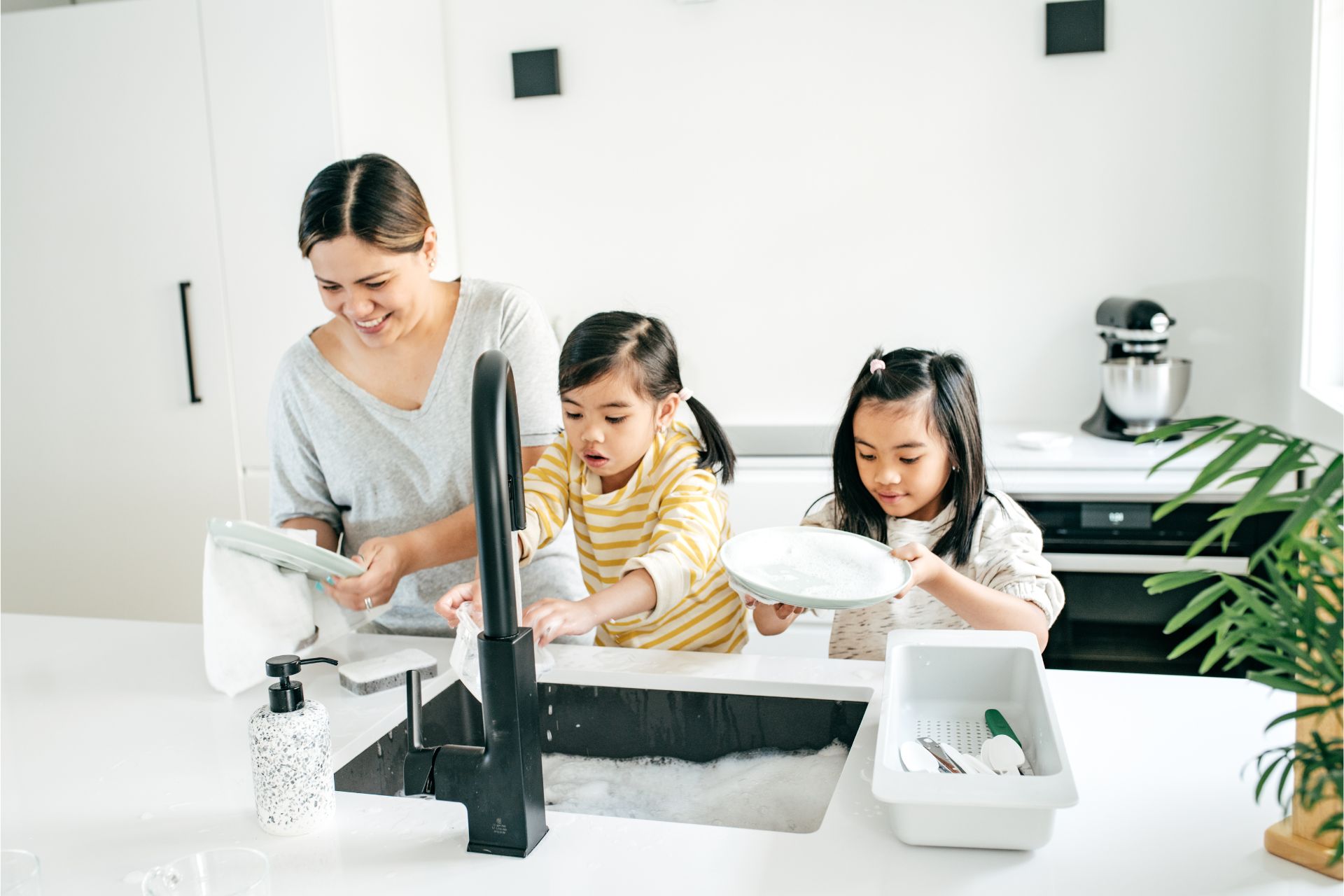
Six great habits to teach your toddler early on, raising a toddler can be a challenging task. However, with the right guidance and a few good habits, it can be an enjoyable and rewarding experience. Teaching your toddler good habits early on can help them develop into well-rounded individuals who possess the skills necessary to navigate life.
Having a toddler can be a challenge, but it’s also an exciting and rewarding time. When you’re parenting a toddler, it’s important to focus on teaching them good habits that will serve them as they get older. Here are six great habits that you can start teaching your toddler early on. By doing so, you’ll set them up for success in the future.

Six Great Habits to Teach Your Toddler Early On
Use Positive Reinforcement
One of the best ways to encourage your toddler to develop good habits is to use positive reinforcement. Positive reinforcement is a powerful tool that can help shape behavior and establish desirable habits in toddlers.
By praising and rewarding good behavior, you can show your toddler that they’re doing something right and reinforce the desired behavior. Rewarding good behavior with verbal praise, hugs, or even small treats can be effective and help foster a loving relationship between parent and child.
Try to focus on the desired behavior, instead of punishing for undesirable behavior, so your toddler knows what to do and what is expected of them. By focusing on the positive, you can help your toddler learn good habits faster and more effectively.
Set Clear Expectations
When it comes to teaching good habits to your toddler, setting clear expectations is key. This means making sure that they understand what is expected of them and what the consequences will be if they don’t follow through. Before setting expectations, it’s important to make sure that your toddler has the skills and understanding to meet those expectations.
Start by explaining to your toddler what behavior is expected of them in a simple way. Speak calmly and use positive language like “please” and “thank you”. Be specific about what you want them to do or not do. For example, instead of just saying “Stop running around”, try telling them “Please stay with me and walk”.
Use incentives such as praise and rewards for meeting expectations, and provide consequences for failing to follow through. Make sure your toddler understands that when expectations are not met, there will be a consequence.
It may also help to give them visual cues to remind them of the expectations. For example, create a chart of tasks that need to be completed before bedtime and put it on the wall in their bedroom. This will help keep them focused on the task at hand and help reinforce the expectations.
Setting clear expectations and consistently enforcing them will help your toddler learn good habits early on. It takes time, patience, and practice, but with consistency, you can help your toddler develop healthy habits that will last a lifetime.
Encourage Them to Be Independent
Encouraging your toddler to be independent is an important step in helping them develop good habits. This can be done by allowing them to do small tasks, like helping with chores or picking out their own clothes.
As they become more comfortable with independence, they can start doing more complicated activities, such as making their own snack or helping with meal preparation. Be sure to provide guidance, but let them take ownership of the task. This will help them learn how to problem solve and think for themselves.
Additionally, provide positive reinforcement when they complete a task independently. This will help them feel proud of their accomplishments and further motivate them to develop new skills.
Help Them Develop a Routine
Creating a routine for your toddler can have a big impact on their development and behavior. Routines provide structure and consistency, which can help your toddler learn how to self-regulate. They will know when to expect certain activities such as meal times and bedtimes, making it easier for them to adjust to changes in their environment.
Establishing a daily routine should be done gradually as your toddler learns to understand and adhere to it. Start by introducing simple rituals like regular mealtimes, naps, playtimes, and bath times. As they get older, you can add more activities like reading stories and brushing their teeth into their routine.
When building a routine, it’s important to keep things consistent. Try to make sure that your toddler’s schedule is the same each day and make adjustments as necessary. It’s also helpful to give them enough time between activities so that they don’t feel rushed.
It’s also important to set reasonable expectations when establishing a routine. A toddler’s attention span is usually quite short, so it’s best to keep activities short and sweet. If you set up a task that’s too long or complicated, your toddler may become frustrated and lose interest quickly.
Finally, use positive reinforcement to help your toddler stick to the routine. Praise them for completing tasks on their own and offer rewards for following instructions. This will help them develop good habits that will serve them well into adulthood.
Promote Good Hygiene
One of the most important habits you can teach your toddler is good hygiene. Good hygiene practices should be started as early as possible, as it can have a lasting impact on your child’s overall health. Start by teaching your child basic handwashing skills, such as how to properly wash their hands with soap and water for at least 20 seconds.
Show them the importance of washing their hands after using the bathroom, before and after meals, and after playing outside.
Teach them to cover their mouth when they sneeze or cough, and to throw away used tissues in a wastebasket. Explain why it’s important to keep their nails clean and trimmed, as well as brush their teeth twice a day.
You can make brushing your teeth fun by letting your toddler pick out their own toothbrush and toothpaste, or singing a song while they brush their teeth. Additionally, introduce them to regular baths or showers, which will help keep their skin clean and healthy.
By instilling good hygiene habits early on, you are giving your toddler a solid foundation for good health throughout their life.
Model the Behavior You Want to See
As a parent, your influence on your toddler is immense. Your toddler will learn many habits and behaviors from you, so it’s important to model the behavior you want them to exhibit. For example, if you want your toddler to be kind, courteous, and generous, show them how to do those things.
You can demonstrate these behaviors by doing things like volunteering with your child, holding doors open for others, and generally being polite and respectful when interacting with other people.
Another important behavior to model is patience. Toddlers have short attention spans and can easily become frustrated, but it’s important to demonstrate that you remain calm and patient when they are feeling overwhelmed. Take the time to talk through their feelings with them and show them how you deal with situations calmly and constructively.
Finally, practice what you preach. If you tell your toddler to clean up after themselves or to wait their turn, be sure to do those things yourself. Children often imitate their parents and will pick up on inconsistencies between what you say and how you act. So, when it comes to teaching your toddler good habits and behavior, remember that it’s important to lead by example.
Final Thought
Six great habits to teach your toddler early on, Parenting is all about setting your child up for success, and teaching them good habits from an early age is the best way to do that. As a parent, you have the ability to help your toddler develop a strong foundation of healthy habits that will benefit them for the rest of their life. With a little patience, consistency, and positive reinforcement, you can set your toddler up for success and watch as they thrive!
Pin This For Later!


